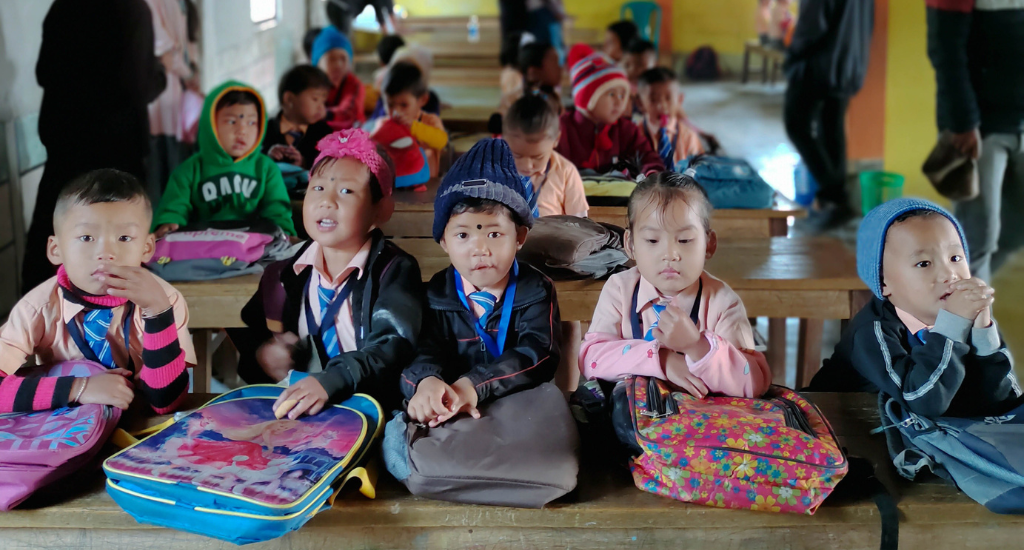
Learning the ABC of Toto language
Bengal’s Toto tribals, who come under the Particularly Vulnerable Tribal Group, are striving to keep their endangered local language alive by teaching kids its new-created alphabet system.

Bengal’s Toto tribals, who come under the Particularly Vulnerable Tribal Group, are striving to keep their endangered local language alive by teaching kids its new-created alphabet system.
In a remote tribal village where people struggle to fulfil their everyday requirements, it may seem okay if the need to preserve and promote the local language appears at the end of their priority list. And yet the Toto community, living in a small hamlet called Totopara in Alipurduar district of West Bengal, has come together to revive their dying oral language and even create a script, showing the significance their cultural identity holds in their hearts.
The Totos come under the Particularly Vulnerable Tribal Group in the state. The Toto language is listed in UNESCO’s ‘endangered’ category.
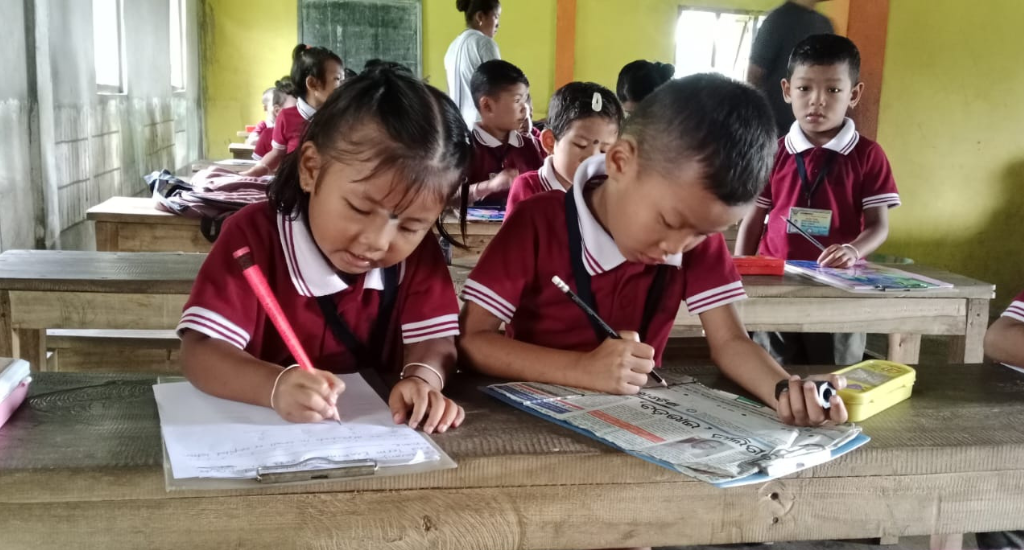
From 2018, when the Toto script didn’t exist, to now, when about 10 percent of the children can read and write the alphabet, a gaping chasm is being filled.
The script was a result of years of yearning and work put in by Dhaniram Toto. The 59-year-old employee at West Bengal’s Backward Classes Welfare (BCW) department took only about six months to come up with the alphabet series, but he had been holding the cause close to his heart for far longer than that. He won the Padma Shri earlier this year for his endeavours.
“I have just opened a road to take forward our cultural heritage,” Dhaniram Toto, a bibliophile who has studied till class 10, told Village Square on the phone.
Dhaniram Toto has earlier written books narrating folk tales in Toto language using Bengali script. After he created the script, he has so far compiled about 350 words using the alphabet and is currently working on writing prose.
His efforts have been embraced by the entire community. The script is being taught at the local privately run primary school.
“A big positive sign is that many children are now interested in learning the Toto script,” said Prakash Toto, 35, the principal of Chittaranjan Toto Memorial Education Centre, where students are taught how to read and write in Toto, along with other regular subjects.
Also Read: Books in tribal languages help rejuvenate school learning in central India
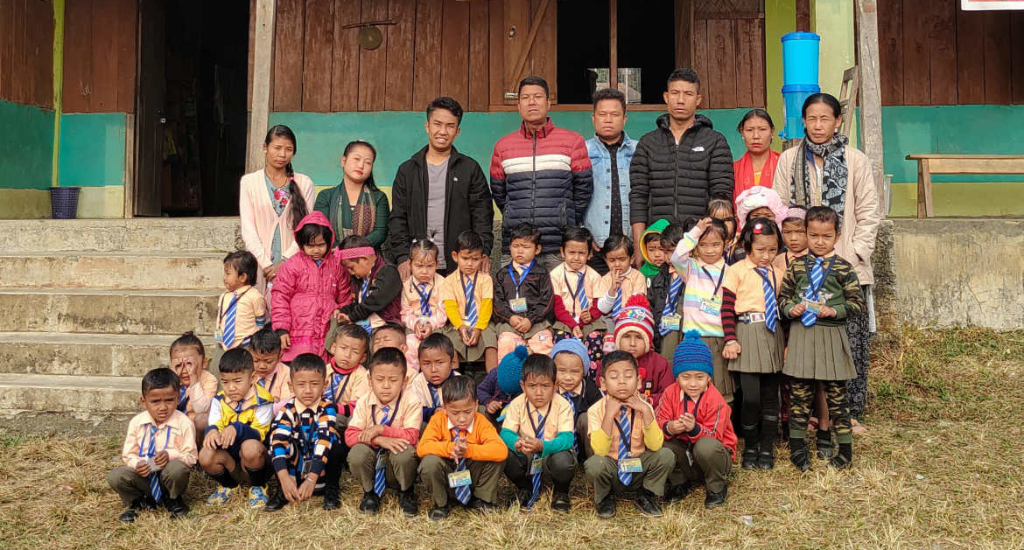
The school, with a student strength of 96, was set up in 2014 and runs classes from nursery to class 5. Of the seven teachers in the institute, two take Toto classes for the students.
“Besides me, the local language and script is taught by Soney Toto, who is an English teacher and Toto singer,” added Prakash, 35, who holds a BA degree. “We were also helped by Australian linguist Toby Anderson in fine-tuning the characters. The district administration recently printed 500 practice notebooks on which children can trace the Toto alphabets, and these are used by us in the school.”
The school however is in need of more support for building classrooms since it currently holds classes for all standards in a single hall. The community has also launched a crowdfunding campaign to gather funds for this.
The Totos, who along with Lodha and Birhor comprise the three Particularly Vulnerable Tribal Groups (PTGs) in West Bengal, had nearly become extinct in the 1950s. Government efforts to support the population made slow changes, and in the 2011 Census, their number was recorded as 1,387. All of them live in Totopara, which is located amid forests at the foot of the Himalayas near the Bhutan border.
Also Read: Assamese monks on mission to save rare culture and language
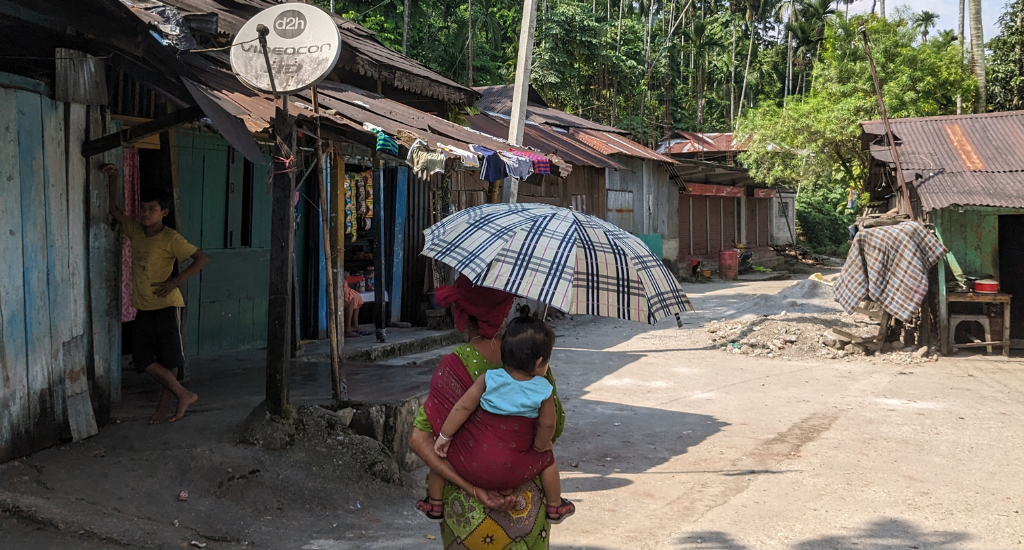
The hamlet, located over 700km from the state capital Kolkata, continues to face challenges related to access to medical care and roads. The nearest hospital is located about 30 km away while the road connecting Totopara gets washed away by river waters in the monsoon, cutting off the village entirely. The villagers, tormented by frequent elephant attacks on their maize or paddy crops, have had to slowly shift towards betelnut farming. Many of them migrate for months to Sikkim to work as daily wage labourers.
“Another problem that the youngsters face is the language barrier,” said Dhaniram Toto.
The medium of education in government schools in the region is Bangla, which together with Nepali and a smattering of Hindi form the popular spoken languages.
“The Toto tribe is not eligible for reservation for government posts. Youngsters are unable to get jobs because they fare badly when it comes to writing or speaking English for clearing competitive exams,” Dhaniram Toto added.
The quandary often rears its head when it comes to the youth learning the Toto script as well.
“Many young people in the community ask me if this will help them get a job,” said Dhaniram Toto. “But I tell them that even knowing English does not guarantee employment to anyone. We have to keep the Toto language alive because it is our identity.”
Also Read: Present-day challenges to Adivasi languages
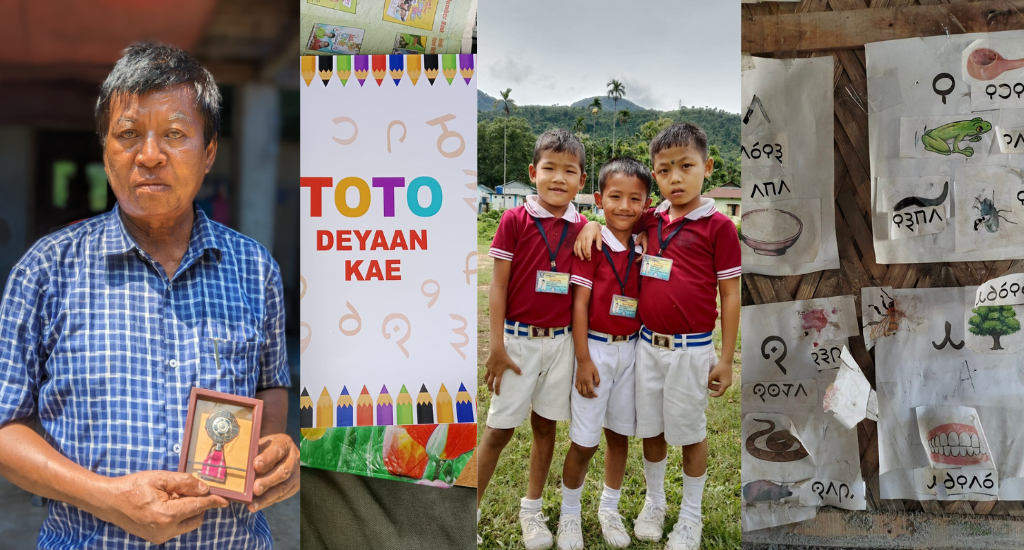
You can get a first-hand experience of the unique Toto culture, language and traditions by participating in the upcoming ‘Tuntungkhamu – The Story of the Totos’ immersive programme. Click here to know more.
The lead image at the top shows little children of Bengal’s Toto tribals, who come under the Particularly Vulnerable Tribal Group. (Photo courtesy Muhaan)
Pallavi Srivastava is Associate Director, Content, at Village Square.